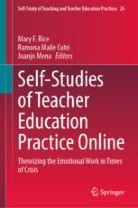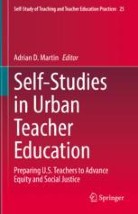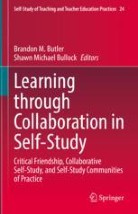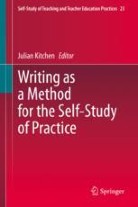
About this book series
Important insights into varying aspects of teacher education emerge when attention is focused on the work of teacher educators. Teacher educators’ observations, explorations and inquiries are important as they offer access to the intricacies of teaching and learning about teaching so important in shaping the nature of teacher education itself. For (at least) this reason, research of the kind found in self-study of teacher education practices (S-STEP) is increasingly pursued and valued by teacher educators. In so doing, self-study also encourages others to look more closely into their own practices.
For many, self-study has become an empowering way of examining and learning about practice while simultaneously developing opportunities for exploring scholarship in, and through, teaching. Self-Study allows educators to maintain a focus on their teaching and on their students’ learning; both high priorities that constantly interact with one another. This interplay between practice and scholarship can then be quite appealing to educators as their work becomes more holistic as opposed to being sectioned off into separate and distinct compartments (e.g., teaching, research, program evaluation, development, etc.). However, just because self-study may be appealing, it is not to suggest that the nature of self-study work should simply be accepted without question and critique. There is a constant need to examine what is being done, how and why, in order to further our understanding of the field and to foster development in critical and useful ways so that the learning through self-study might be informative and accessible to others.This series has been organized in order so that the insights from self-study research and practice might offer a more comprehensive articulation of the distinguishing aspects of such work to the education community at large and builds on the International Handbook of Self Study in Teaching and Teacher Education (Loughran, Hamilton, LaBoskey & Russell, 2004).
Self-study may be viewed as a natural consequence of the re-emergence of reflection and reflective practice that gripped the education community in the last two decades of the 20th century (see for example Calderhead & Gates, 1993; Clift et al., 1990; Grimmett & Erickson, 1988; LaBoskey, 1994; Schön, 1983, 1987). However, self-study aims to, and must, go further than reflection alone. Self-study generates questions about the very nature of teaching about teaching in teacher education (Korthagen & Kessels, 1999) and is important in conceptualizing scholarship in teaching as it generates and makes public the knowledge of teaching and learning about teaching so that it might be informative to the education community in general.This series offers a range of committed teacher educators who, through their books, offer a diverse range of approaches to, and outcomes from, self-study of teacher teacher education practices. Book proposals for this series may be submitted to the Publishing Editor: Claudia Acuna E-mail: Claudia.Acuna@springer.com
- Electronic ISSN
- 2215-1850
- Print ISSN
- 1875-3620
- Series Editor
-
- Julian Kitchen
Book titles in this series
-

-
Self-Studies in Urban Teacher Education
Preparing U.S. Teachers to Advance Equity and Social Justice
- Editors:
-
- Adrian D. Martin
- Copyright: 2022
Available Renditions
- Hard cover
- Soft cover
- eBook

-
Learning through Collaboration in Self-Study
Critical Friendship, Collaborative Self-Study, and Self-Study Communities of Practice
- Editors:
-
- Brandon M. Butler
- Shawn Michael Bullock
- Copyright: 2022
Available Renditions
- Hard cover
- Soft cover
- eBook

-
Writing as a Method for the Self-Study of Practice
- Editors:
-
- Julian Kitchen
- Copyright: 2021
Available Renditions
- Hard cover
- Soft cover
- eBook

-
Being a Teacher Educator in Challenging Times
Negotiating the Rapids of Professional Learning
- Authors:
-
- Mike Hayler
- Judy Williams
- Copyright: 2020
Available Renditions
- Hard cover
- Soft cover
- eBook

Abstracted and indexed in
-
- Norwegian Register for Scientific Journals and Series
